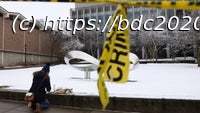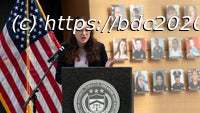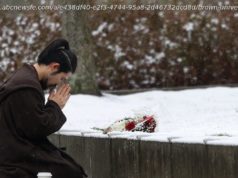WASHINGTON (AP) — The FBI has wrapped up its background investigation of Supreme Court nominee Brett Kavanaugh, but much of what it did remains a…
WASHINGTON (AP) — The FBI has wrapped up its background investigation of Supreme Court nominee Brett Kavanaugh, but much of what it did remains a mystery, including its decisions about whom to interview.
Investigation details have not been publicly disclosed. Republicans say the probe was thorough and reinforces their support of President Donald Trump’s nominee. But Democrats decry it as incomplete and constrained, and Kavanaugh’s accusers say the FBI didn’t interview witnesses who could have corroborated their accounts.
Republicans say the FBI reached out to 11 people, 10 of whom agreed to be interviewed, and produced detailed summaries of the questioning.
Among those not interviewed were Kavanaugh and Christine Blasey Ford, the California college professor who testified last week to Congress that a drunken Kavanaugh sexually assaulted her when they were high school students. Kavanaugh denies the allegations.
Here’s a look at who was questioned — and who was not:
WHO HAS THE FBI INTERVIEWED?
Sen. Chuck Grassley, the Republican chairman of the Senate Judiciary Committee, said the 10 witnesses questioned include several of Kavanaugh’s high school friends, some of whom are listed in the judge’s calendar as having attended a July 1,1982 party that Kavanaugh attended.
Also questioned was Deborah Ramirez, who told the FBI that Kavanaugh exposed himself to her at a party in the early 1980s when they were students at Yale. The FBI also interviewed a close friend of Ramirez’s from college and two other people who Grassley said were identified by Ramirez as eyewitnesses. A third potential witness declined to be interviewed, though Grassley did not identify any of them.
An unidentified lawyer for one of the witnesses was also interviewed.
The FBI questioned Mark Judge, a high school friend of Kavanaugh. Ford says Judge was in the room when Kavanaugh sexually assaulted her in the early 1980s. Judge has said he did not recall the events described by Ford and that he never saw Kavanaugh act in the manner that she describes.
Agents also spoke with two people who Ford said attended the party where she said she was attacked, though she says they did not witness the incident.
Ford’s friend Leland Keyser was questioned Saturday and said she didn’t know Kavanaugh and doesn’t remember being at a party with him. Keyser believes Ford’s account but is “unable to corroborate it because she has no recollection of the incident in question,” her attorney, Howard Walsh, said.
Patrick “P. J.” Smyth, who Ford said had also attended the party, told investigators he had “no knowledge” of the gathering Ford described or any allegation of misconduct by Kavanaugh, according to his attorney, Eric Bruce.
The FBI also spoke with two more of Kavanaugh’s high school classmates, Chris Garrett, whom Ford has said she “went out with for a few months,” and Timothy Gaudette, who is listed in Kavanaugh’s calendars as having hosted the 1982 gathering that Kavanaugh attended.
A member of Ford’s legal team said in a statement that had Ford been interviewed, she would have told the FBI that the assault did not occur at the party because she knew well the people who were listed as having attended and would have remembered if they were there.
WHO HASN’T BEEN INTERVIEWED?
Top on the list are Ford and Kavanaugh. The FBI also hasn’t interviewed several potential witnesses identified by Ford’s attorneys as people who could corroborate that she provided details of the attack years ago — a counterpoint to claims that her allegations may be politically motivated.
Ramirez’s lawyers provided the agents with a list of more than 20 witnesses, including some who Ramirez believes could corroborate her account, though it was unclear if the witnesses identified by Grassley were among those on Ramirez’s list.
Several of Kavanaugh’s Yale classmates also reached out to the FBI, but were never contacted. They include Charles “Chad” Ludington, who has challenge Kavanaugh’s testimony about his drinking and said Kavanaugh was “a frequent drinker, and a heavy drinker.”
Another classmate, Kerry Berchem, said she’s made multiple submissions to a tip line but has not received a return phone call or substantive response from the FBI.
The FBI also never contacted Julie Swetnick, who has alleged she was victimized at a party attended by Kavanaugh and his friends. Swetnick accused Kavanaugh and Judge of excessive drinking and inappropriate treatment of women in the early 1980s, among other accusations. Kavanaugh has called her accusations a “joke.” Judge “categorically” denies the allegations.
Also not questioned: Judge’s former girlfriend, Elizabeth Rasor, who said Judge told her in 1988 that he and several Georgetown Prep classmates took turns having sex with an inebriated woman. Rasor sent an affidavit to the Senate Judiciary Committee, but her lawyer says the FBI didn’t respond to her client’s request to be interviewed. Judge’s lawyers have said he denies her account.
WHY WEREN’T MORE PEOPLE INTERVIEWED?
The answers aren’t clear. The White House and the FBI aren’t saying.
The Trump administration said it cleared the FBI to interview any witnesses it deemed relevant. But a retired FBI assistant director, Joseph Campbell, said the White House nonetheless sets the parameters for the people it wants contacted.
“It’s not like a typical type of investigation, where the FBI has wide latitude to pursue facts and evidence and information as necessary to develop a case or develop information for national security purposes, that type of thing,” Campbell said.
The absence of interviews of Kavanaugh and Ford has particularly raised eyebrows.
Chris Quick, a retired FBI special agent with experience in background investigations, said the White House and the FBI may be reluctant to have them rehash things they both already stated under oath to the committee — especially given the one-week time constraint.
“Part of it is she already testified to the Senate Judiciary Committee, both of them,” Quick said.






